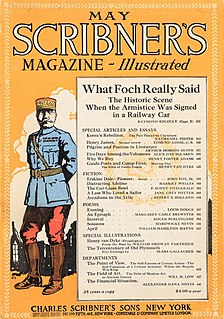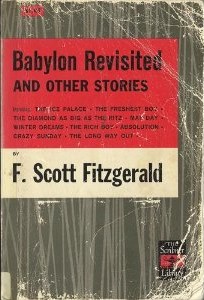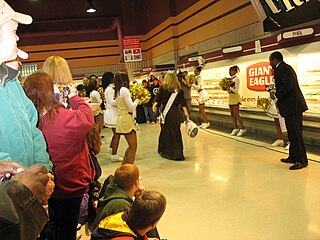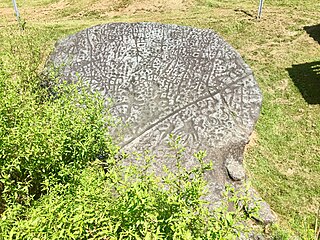
Bodyline, also known as fast leg theory bowling, was a cricketing tactic devised by the English cricket team for their 1932–33 Ashes tour of Australia. It was designed to combat the extraordinary batting skill of Australia's leading batsman, Don Bradman. A bodyline delivery was one in which the cricket ball was bowled, at pace, at the body of the batsman in the expectation that when he defended himself with his bat a resulting deflection could be caught by one of several fielders standing close by on the leg side.
Turkey is a country in Europe and Asia.

This Side of Paradise is the debut novel by F. Scott Fitzgerald, published in 1920. The book examines the lives and morality of carefree American youth at the dawn of the Jazz Age. Its protagonist Amory Blaine is an attractive middle-class student at Princeton University who dabbles in literature and engages in a series of romances with flappers. The novel explores the theme of love warped by greed and status seeking, and takes its title from a line of Rupert Brooke's poem Tiare Tahiti.
An ice palace is a castle-like structure made of ice. The earliest known may be Anna Ivanovna's palace (1739–1740) in St. Petersburg, Russia.
F. Scott Fitzgerald (1896–1940) was an American author of novels and short stories.

The Short Stories of F. Scott Fitzgerald is a compilation of 43 short stories by F. Scott Fitzgerald. It was edited by Matthew J. Bruccoli and published by Charles Scribner's Sons in 1989. It begins with a foreword by Charles Scribner II and a preface written by Bruccoli, after which the stories follow in chronological order of publication.
Head and Shoulders may refer to:

"The Cut-Glass Bowl" is a short story by American author F. Scott Fitzgerald, first published in the May 1920 issue of Scribner's Magazine, and included later that year in his first short story collection Flappers and Philosophers. The story follows the lives of a married couple, Evylyn and Harold Piper, through various difficult or tragic events that involve a cut glass bowl they received as a wedding gift. In a copy of Flappers and Philosophers which he gave to literary critic H. L. Mencken, Fitzgerald wrote that he deemed the story to be "worth reading" in contrast to others in the volume which he dismissed as either "amusing" or "trash."

Babylon Revisited and Other Stories is a collection of ten short stories written between 1920 and 1937 by F. Scott Fitzgerald. It was published in 1960 by Charles Scribner's Sons.
Big Game or The Big Game may refer to:
Mayday or May Day may refer to:

Francis Scott Key Fitzgerald was an American novelist, essayist, short story writer and screenwriter. He was best known for his novels depicting the flamboyance and excess of the Jazz Age—a term he popularized. During his lifetime, he published four novels, four story collections, and 164 short stories. Although he achieved temporary popular success and fortune in the 1920s, Fitzgerald received critical acclaim only after his death and is now widely regarded as one of the greatest American writers of the 20th century.

Turkey bowling is a sport which is based on ordinary bowling: a frozen turkey serves as a bowling ball and 10 plastic bottles of soft drinks or water are the bowling pins. The turkey is bowled down a smooth surface, for example, ice or a soap covered sheet of painters plastic. It is commonly associated with Thanksgiving.

"The Rich Boy" is a short story by American writer F. Scott Fitzgerald. It was included in his 1926 collection All the Sad Young Men. "The Rich Boy" originally appeared in two parts, in the January and February 1926 issues of Redbook. In the January installment, the story is described on the front cover as: "A great story of today's youth by F. Scott Fitzgerald".

Judaculla Rock is a curvilinear-shaped outcrop of soapstone known for its ancient carvings and petroglyphs. The archaeological site is located on a 0.85-acre rectangular-shaped property, now owned by Jackson County. It is approximately 60 meters east of Caney Fork Creek, a major branch of the northwestward-trending Tuckasegee River in the mountains of Western North Carolina.
FitzGerald, or Fitzgerald, is a Hiberno-Norman, Cambro-Norman, Anglo-Norman surname. It is patronymic as the prefix Fitz- derives from the Latin filius, meaning "son of".
A New Leaf or New Leaf may refer to:
"The Adjuster" is a short story written by American author F. Scott Fitzgerald. The story appears in Fitzgerald's third collection of short stories All the Sad Young Men, published by Scribners in February 1926. The story depicts the troubled relationship of married couple Luella and Charles Hemple, living in New York City in 1925.
This page is based on this
Wikipedia article Text is available under the
CC BY-SA 4.0 license; additional terms may apply.
Images, videos and audio are available under their respective licenses.








